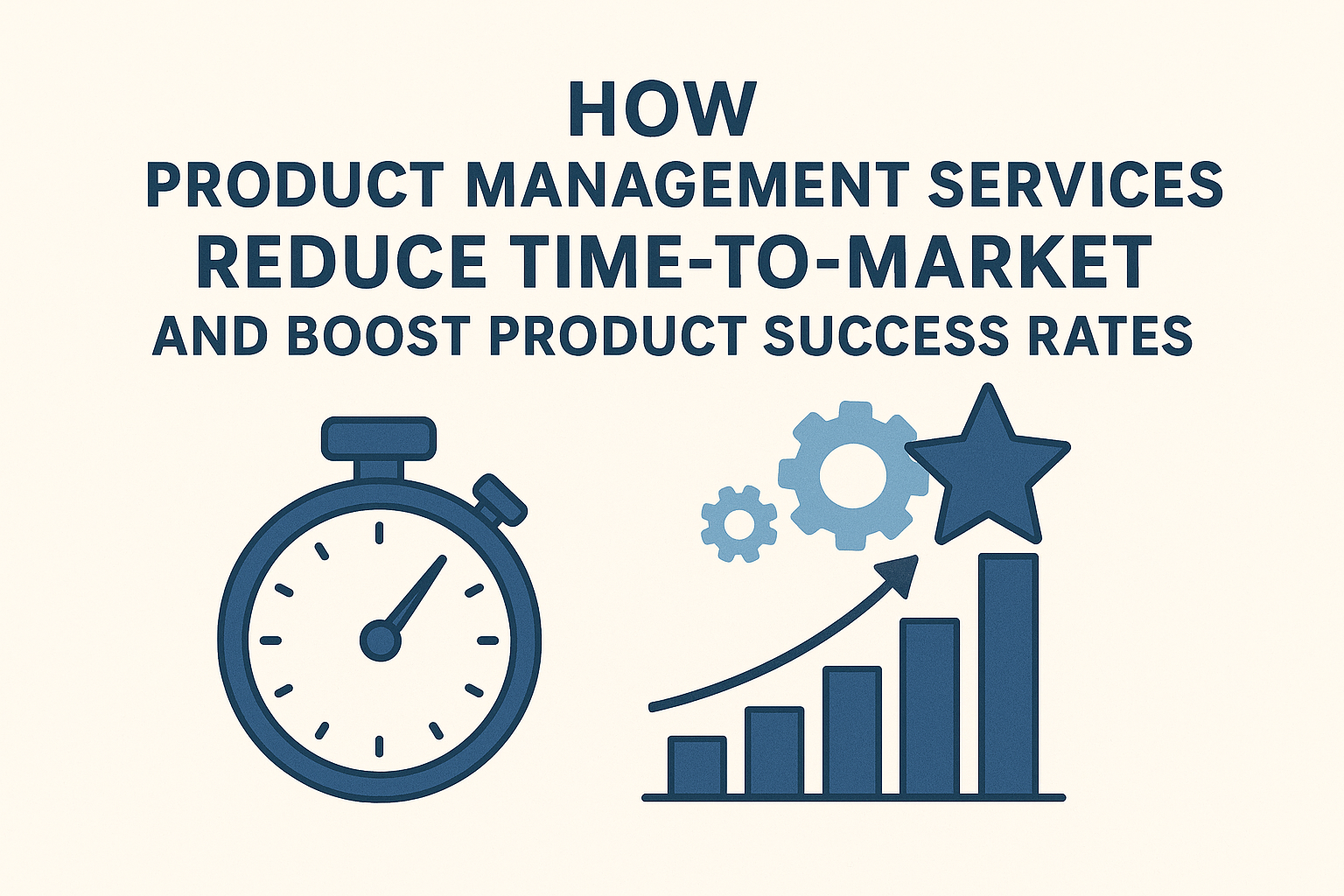
In the fast-paced world of product development, speed and precision are critical to staying ahead of the competition. How can businesses consistently deliver successful products while meeting tight deadlines? What mechanisms ensure that market demands are addressed efficiently? The answer lies in leveraging Product Management Services, which have become indispensable for companies aiming to reduce time-to-market and boost product success rates.
Understanding the Value of Product Management Services
Product Management Services serve as the strategic backbone for product development. By defining clear objectives, prioritizing tasks, and aligning teams, these services enable organizations to move from concept to launch efficiently. The primary goal is to ensure that every stage of product development is coordinated, resources are optimized, and risks are minimized.
Who benefits from Product Management Services? Every stakeholder involved in product development, including executives, project managers, engineers, designers, marketers, and customer success teams, can leverage these services to streamline decision-making and improve outcomes.
Where are Product Management Services most impactful? They are critical in technology, healthcare, finance, and consumer goods sectors, where rapid innovation and precise market targeting are essential. Companies that implement structured product management experience faster launches, reduced errors, and higher adoption rates.
Reducing Time-to-Market
Time-to-market (TTM) refers to the interval between a product idea and its availability for consumers. A shorter TTM can be a decisive advantage, allowing businesses to capture market opportunities before competitors. Product Management Services reduce TTM in several ways:
1. Strategic Planning and Roadmapping
By establishing a detailed roadmap, product managers define priorities and milestones, helping teams focus on what matters most. This clarity eliminates unnecessary work and reduces the likelihood of delays.
2. Cross-Functional Collaboration
Product Management Services facilitate communication between departments, ensuring alignment between engineering, marketing, sales, and customer support. This collaboration prevents silos and accelerates decision-making.
3. Agile Implementation
Agile methodologies, guided by product managers, allow iterative development and frequent feedback loops. Teams can adapt quickly to changes, release minimum viable products faster, and refine offerings based on real-time insights.
4. Resource Optimization
Efficient allocation of resources, time, personnel, and budget is critical for reducing delays. Product managers identify bottlenecks, delegate tasks effectively, and ensure that high-priority objectives are addressed promptly.
Boosting Product Success Rates
A successful product satisfies user needs, aligns with market trends, and meets financial targets. Product Management Services increase the likelihood of achieving these outcomes through:
Customer-Centric Approach
By integrating customer feedback throughout development, product managers ensure that features resonate with end-users, increasing satisfaction and adoption rates.
Risk Management and Predictive Insights
Early identification of potential risks, such as technical challenges or market shifts, allows teams to implement mitigation strategies, avoiding costly mistakes.
Data-Driven Decision Making
Through analytics and market research, product managers guide teams with actionable insights. Decisions are based on real data rather than assumptions, improving the accuracy of product direction.
Continuous Improvement
Product Management Services encourage ongoing evaluation and iteration. Post-launch reviews, performance metrics, and user feedback inform refinements, ensuring that products evolve effectively.
Practical Applications Across Industries
Technology: Product Management Services help software companies release apps and platforms rapidly, ensuring timely feature updates and robust user experiences.
Healthcare: Managing medical device development or healthcare apps demands strict compliance and efficiency. Product managers streamline regulatory approvals while keeping projects on schedule.
Construction and Industrial Sectors: Coordinating complex projects with multiple stakeholders requires precise planning. Product Management Services ensure equipment, materials, and teams are aligned, reducing delays and cost overruns.
Consumer Goods: From market research to supply chain coordination, product managers accelerate product launches while keeping quality and consumer trends in focus.
Advantages Over Traditional Approaches
Without dedicated product management, companies often face fragmented communication, unclear priorities, and extended development cycles. Traditional approaches may rely on reactive decision-making, which increases the risk of delays and market mismatches. Product Management Services contrast this by providing a proactive, structured framework, optimizing efficiency and enhancing the chances of success.
Visualizing Impact
| Stage of Product Development | Without Product Management | With Product Management Services |
|---|---|---|
| Idea Generation | Unstructured, ad hoc | Clear roadmap and priorities |
| Resource Allocation | Reactive, inefficient | Optimized, proactive |
| Feature Prioritization | Based on opinion | Data-driven decisions |
| Launch Timing | Delayed, inconsistent | Streamlined, predictable |
| Post-Launch Improvement | Inconsistent feedback | Continuous iteration |
This table demonstrates how structured product management transforms development outcomes, ensuring timely delivery and higher success rates.
Integrating AI for Enhanced Results
AI automation has become a transformative complement to Product Management Services. AI tools analyze massive datasets to forecast trends, monitor performance, and automate repetitive tasks, freeing product managers to focus on strategy and innovation. Companies that integrate AI experience accelerated decision-making, more accurate market predictions, and optimized development cycles.
Conclusion
How can businesses maintain speed without compromising quality? Product Management Services provide the answer. By aligning teams, prioritizing tasks, integrating feedback, and leveraging data-driven insights, these services reduce time-to-market and significantly enhance product success rates.
What sets them apart is their ability to transform a complex, multi-stakeholder process into a streamlined, efficient journey from concept to launch. With the addition of AI automation tools, businesses can further amplify these benefits, ensuring products reach the market faster, resonate with users, and maintain long-term success.
For companies seeking to compete effectively, investing in Product Management Services is not merely an operational choice; it is a strategic imperative. Product Siddha empowers businesses to harness these services, bridging the gap between innovative ideas and market-ready products while optimizing every stage of development for success.
